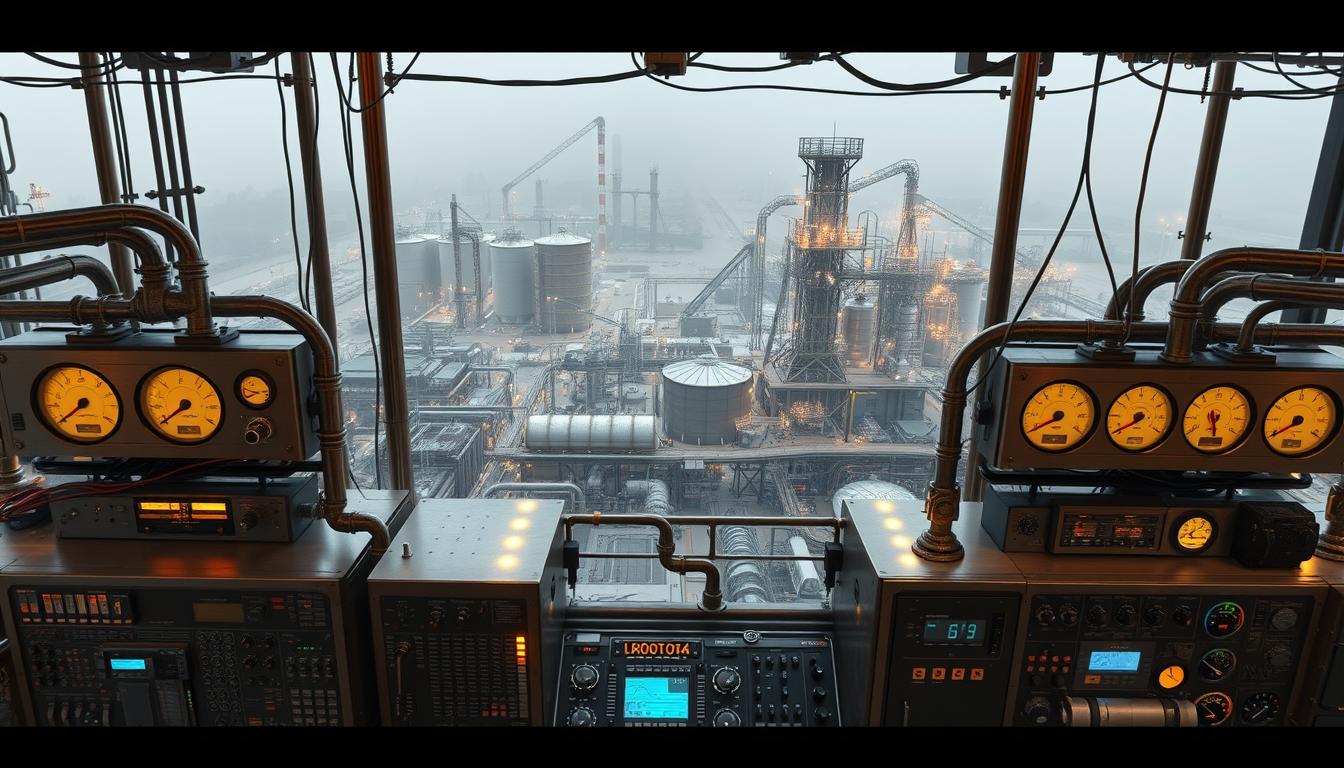Exploring industrial instrumentation and process control shows their key role in boosting efficiency and safety. In today’s quick-paced world, controlling processes well is essential. Automation helps make processes better, allowing for quick monitoring that cuts costs and boosts productivity.
Learning about these areas helps me improve management in fields like manufacturing, oil and gas, and pharmaceuticals.
Understanding Industrial Instrumentation:
Industrial instrumentation uses devices to measure and manage important industrial parameters. This includes things like pressure, temperature, flow, and level. I’ve seen how accurate measurements help make better decisions, which increases productivity.
There are many types of instrumentation out there, each with its own role. Analog devices give us real-time readings, while digital ones offer more accuracy and clarity. These tools work well with control systems, helping keep manufacturing environments at their best.
Groups like the Instrumentation Systems and Automation Society and ISA – The Global Society for Automation set standards for instrumentation. They share best practices and new ideas, keeping operations efficient and reliable. Knowing about industrial instrumentation is key for those interested in technology and process control.
The Role of Sensors in Process Control:
Sensors are key in process control systems. They collect important data in real-time. This data helps monitor and control industrial processes well.
Temperature sensors are vital for keeping things at the right temperature. Pressure sensors are important for keeping systems safe and working right. Flow sensors help make sure materials move as they should. All these sensors help keep processes running smoothly and safely.
Companies like Siemens, Honeywell, and Endress+Hauser have improved sensor technology a lot. Their new designs and better accuracy have changed how sensors work in control systems. It’s important for sensors to be reliable because mistakes can be expensive and dangerous. Using top-quality sensors helps ensure that control systems work well.
Process Control Fundamentals:
Understanding process control is key for those in industrial automation. It’s about keeping outputs right, even when things change. Feedback loops play a big role here. They watch the output and compare it to what’s wanted. This helps make sure things stay on track.
PID control is a common way to manage these loops. It uses three main parts: proportional, integral, and derivative. The proportional part adjusts based on the error. The integral part fixes long-term issues. And the derivative part looks ahead to future problems. These parts work together to control systems well.
Knowing these basics helps in designing control systems. It shows how important keeping things stable is. A stable process means better work and less waste. This leads to more efficient operations. As I learn more about process control, these basics are always important.
Types of Process Control Systems:
In the world of industrial automation, knowing the types of process control systems is key. We mainly have two types: open-loop control and closed-loop control. Each type has its own features that impact how they’re used in different industries.
Open-loop control systems don’t use feedback. They work based on set rules and don’t change on their own. This makes them simple to handle but might not be precise enough for complex tasks. They’re best for less critical jobs.
Closed-loop control systems, on the other hand, use feedback to keep an eye on and tweak the process. This makes them more accurate and stable. They’re used in tough environments where precision is essential. Even though they’re more complex, their accuracy and reliability make them worth it.
Implementation of Automated Process Control:
Putting in automated control systems is key for better industrial processes. I’ve seen how Distributed Control Systems (DCS) and Programmable Logic Controllers (PLC) boost automation. DCS makes it easy to watch and control everything from one place. PLCs are fast and flexible, handling specific tasks well.
These systems work together smoothly, making production lines more efficient and quick. This teamwork is what makes automation so powerful.
System integration is more than just tech; it’s a strategic move. It lets different parts of automation talk to each other, sharing data in real-time. This helps make better decisions fast.
Setting up these systems needs careful planning and execution. It’s important to make sure everything works well together. Working with experts can make this process smoother, leading to better results.
Challenges in Process Control:
The world of process control faces many challenges. One big issue is reliability. Equipment failures or unexpected downtimes can hurt productivity. Keeping systems reliable is hard, thanks to new technology.
Safety is also a major concern. Industries must balance efficiency with safety risks. Modern systems can be complex, leading to accidents if not watched closely. Making sure safety rules are part of process control is key.
System complexity adds to the challenges. New tech and complex processes make it hard to keep up without losing performance. I’ve seen how tough it is for companies to make these changes. Studies from leaders show ways to tackle these issues.
The Future of Industrial Instrumentation and Process Control:
Looking ahead, trends like Industry 4.0 and the Internet of Things (IoT) will change industrial instrumentation and process control. These changes are more than just new tech; they’re a new way to collect and analyze data. Smart sensors, integrated systems, and advanced analytics are making information flow smoothly, helping industries make better decisions.
The digital transformation brings new levels of automation and efficiency. I expect to see more predictive maintenance and remote monitoring thanks to strong IoT networks. This will make industries more productive and reduce downtime.
Industry forecasts show big changes coming. Companies with the latest tech will lead in sustainability and resource use. This will help the environment. As we move forward, automation, machine learning, and data analytics will make process control efficient and easy. This will open up new possibilities we haven’t seen yet.
